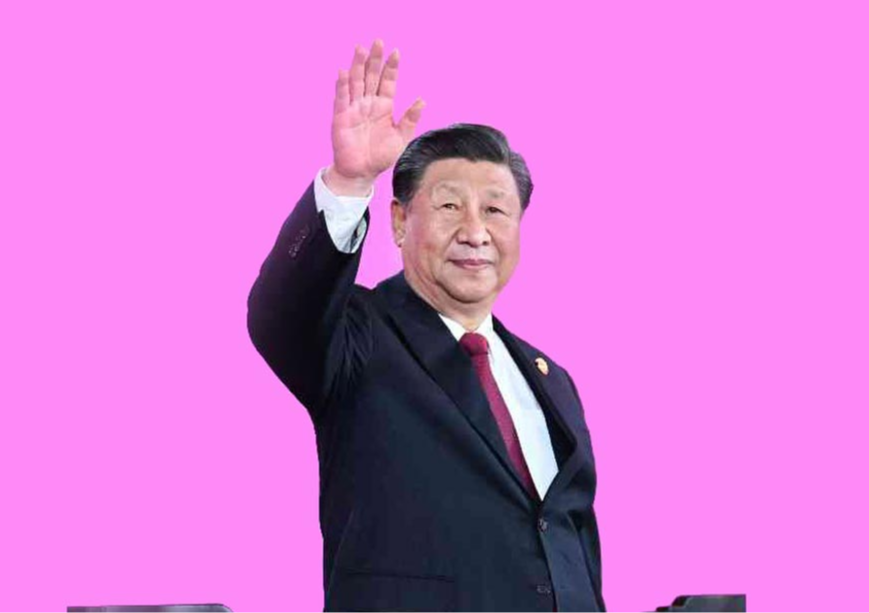-
CENTRES
Progammes & Centres
Location
China continues to warn regional players of negative consequences of their actions. Yet, it is Beijing’s own behaviour that is reshaping the Indo-Pacific landscape

The waters of the South China Sea are roiling again; this time, it is the Philippines that is at the heart of the turbulence. Although Manila and Beijing have been at loggerheads over submerged shoals in the South China Sea for decades, China has upped the ante in recent months with Chinese ships firing water cannons and ramming into Philippine ships. Beijing’s grey zone tactics have been evident to the wider world, with Manila hoping that perhaps this negative publicity would force China to back off. But that has not been the case so far.
The ASEAN has tried to pursue a diplomatic approach, advocating for a peaceful resolution through dialogue and adherence to international law, particularly the United Nations Convention on the Law of the Sea.
Since the election of President Ferdinand Marcos Jr last year, the Philippines’s foreign policy has undergone a dramatic shift. Accommodating China’s aggressive behaviour under the former president, Rodrigo Duterte, has given way to a stronger diplomatic and military pushback by Manila. The Association of Southeast Asian Nations has been unable to find a cohesive response to the challenge posed by China in the South China Sea with Beijing’s expansive claims clashing against those of ASEAN members such as Vietnam, the Philippines, Malaysia, and Brunei, which assert sovereignty over parts of the sea. The ASEAN has tried to pursue a diplomatic approach, advocating for a peaceful resolution through dialogue and adherence to international law, particularly the United Nations Convention on the Law of the Sea. However, achieving consensus among member states with differing strategic priorities and relationships with China has been challenging. ASEAN’s efforts towards the establishment of a Code of Conduct in the South China Sea to mitigate the risk of conflict and enhance maritime security have also not gone very far, exposing the dysfunctionality at the heart of the ASEAN.
Consequently, the Philippines finds itself dealing with the China challenge on its own. This is now resulting in Manila trying to craft a more proactive foreign policy, which is increasingly looking beyond ASEAN. Recently, Marcos visited the United States of America to advance trilateral defence cooperation through joint naval exercises with Washington and Tokyo. President Joe Biden underscored Washington’s commitment to defend the Philippines from any attack in the South China Sea, calling its support for Manila “ironclad”.
Kishida and Biden announced plans to develop a joint air and missile defence network in the region along with Australia as well as participate in three-way military exercises along with the United Kingdom.
This new Washington-Manila-Tokyo trilateral came after Japan and the US shored up their defence partnership by announcing a range of pacts during the US visit by the Japanese prime minister, Fumio Kishida. Kishida and Biden announced plans to develop a joint air and missile defence network in the region along with Australia as well as participate in three-way military exercises along with the United Kingdom. As the threat from China looms large, Japan has slowly but surely been trying to move away from its pacifist identity with the Japanese cabinet last month approving the export of new fighter jets it is developing with the UK and Italy. From allowing Japanese troops to fight overseas alongside allies in self-defence to pushing for defence exports, Japanese leaders have been responding to the rapidly evolving strategic realities in the Indo-Pacific.
Manila, too, is grasping with this structural challenge and is now moving away from an accommodating posture to one where it is looking for new partners and new arrangements to secure its interests. It is in this context that India’s ties with the Philippines have also taken an interesting turn. Last month, the external affairs minister, S. Jaishankar, articulated New Delhi’s full support for the Philippines in upholding its national sovereignty in a joint statement during his visit to Manila. The two nations are looking to deepen their defence ties, with Manila purchasing BrahMos supersonic cruise missiles as part of a $375-million contract signed in 2022.
The external affairs minister, S. Jaishankar, articulated New Delhi’s full support for the Philippines in upholding its national sovereignty in a joint statement during his visit to Manila.
China, of course, continues to warn the regional players of the negative consequences of their actions. Yet, it is Beijing’s own behaviour that is reshaping the Indo-Pacific strategic landscape.
This commentary originally appeared in The Telegraph.
The views expressed above belong to the author(s). ORF research and analyses now available on Telegram! Click here to access our curated content — blogs, longforms and interviews.

Professor Harsh V. Pant is Vice President – Studies and Foreign Policy at Observer Research Foundation, New Delhi. He is a Professor of International Relations ...
Read More +